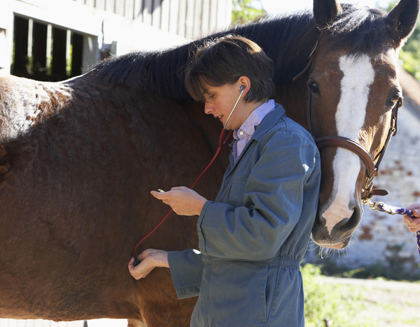Media
New secretariat created for International Research Consortium on Animal Health
Funding for a Scientific Secretariat for the International Research Consortium (IRC) on Animal Health has been approved by the Horizon 2020 EU Framework Programme for Research and Innovation. The IRC builds on the success of the EU-funded STAR-IDAZ Project (Global Strategic Alliances for the Coordination of Research on the Major Infectious Diseases of Animals and Zoonoses), an exciting initiative to coordinate animal health research globally. The Secretariat aims to deliver measurable advances in the control of animal diseases through the alignment of both public and privately funded animal health research around the world.
The Secretariat will be run by a partnership of organisations including Defra (UK Department for Environment, Food and Rural Affairs), World Organisation for Animal Health (OIE), CAB International, BBSRC (Biotechnology and Biological Sciences Research Council), and IFAH-Europe (International Federation of Animal Health - Europe). The IRC will focus on particular diseases such as foot and mouth disease and brucellosis, or aspects related to animal health and welfare such as antimicrobial resistance. The Scientific Secretariat, hosted at OIE Headquarters in Paris, will provide literature reviews and gap analyses to thematic working groups, and support the Scientific Committee and Executive Committee logistically. It will facilitate information exchange within the different partners of the consortium. The Secretariat will also play an important role in advocacy for the consortium and link with new members.
STAR-IDAZ IRC includes research funders and programme owners from Europe, Asia, Australasia, the Americas, Africa and the Middle East as well as international organisations and the representation of veterinary pharmaceutical companies. Together, they have committed a total budget in the region of EUR 2 billion to invest over a five-year period to 2021. Sixteen organisations from twelve countries have signed so far and the consortium is likely to enlarge in the coming weeks and months. These partners have agreed to coordinate their research programmes to address agreed research needs, share results and together seek for new and improved animal health strategies for at least 30 priority diseases, infections or issues. These include candidate vaccines, diagnostics, therapeutics and other animal health products, procedures and/or key scientific information and tools to support risk analysis and disease control.
Roxane Feller, Secretary General of IFAH-Europe said, “Animal diseases are a massive threat, not only to food safety and security, but also to public health through the risk of food-borne pathogens or diseases that are transmissible from animals to people. IFAH-Europe is committed to playing a key role in the newly-established secretariat for the IRC with the shared vision of prioritising research activity to accelerate innovation in the field of animal health.”
Dr Monique Eloit , OIE General Director, said “OIE standards recognized by the WTO for the safe international trade of animals and animal products must be based on the most recent scientific advances as highlighted in the 6th OIE Strategic Plan 2016-2020. I am very pleased to host the Scientific Secretariat at OIE Headquarters and further strengthen the link between research and the preservation of animal health.
Professor Ian Boyd, Defra Chief Scientific Advisor said, "Animal disease often does not respect borders. We have a globally-shared responsibility to ensure that there are adequate diagnostics and preventions to disease transmission and this involves a shared scientific effort among many nations. I am delighted that Defra is leading coordination of the STAR-IDAZ initiative with many other international partners. It is an excellent example of how we can tackle big scientific problems through a shared effort."
Professor Nigel Gibbens, UK Chief Veterinary Officer said “In an environment of financial challenge and increasing global disease threats, the work of the STAR-IDAZ IRC to coordinate research activities is essential to maintaining laboratory capability and ongoing development of innovative solutions to protect animal and human health”.
Dr Trevor Nicholls, CEO of CABI said, “Diseases which can transfer from animals to humans are a major threat to global public health. CABI welcomes this exciting new partnership of organizations, each with strong interests in research, animal health, and science communication. The establishment of this secretariat will help the consortium achieve its goals through coordinated research and implementation.”
Steve Visscher, Deputy Chief Executive, BBSRC said, “BBSRC welcomes the establishment of a secretariat for STAR-IDAZ IRC. IRC brings partners across the globe to coordinate their efforts to address challenges associated with animal diseases that cause serious social, economic and environmental damage, impact on animal welfare and in some cases directly threaten human health. Endorsed by the G20 Ministry of Agriculture Chief Scientists at their recent meeting in Beijing 2016 this IRC will contribute to new and improved animal health strategies for key priority animal diseases/infections/issues.”

